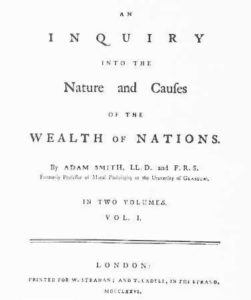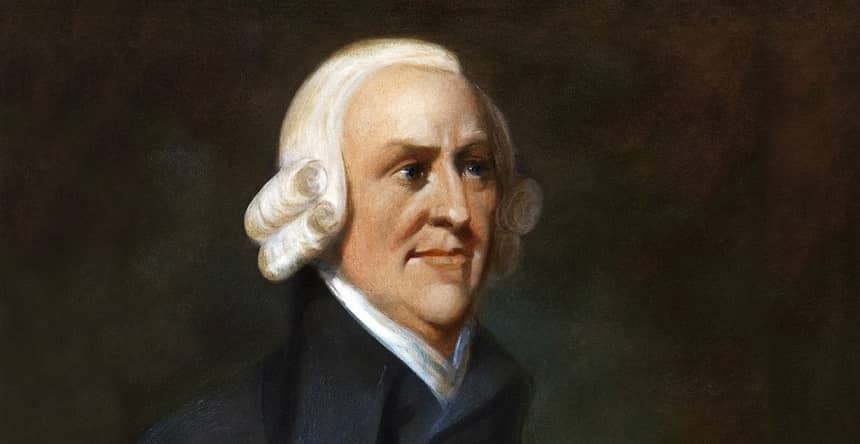Adam Smith, a renowned Scottish social philosopher, and political economist, even today exhibits an eminent place in the history of economics.
Baptized on 5 June 1723, Adam Smith is recognized for his work-An Inquiry into the Nature and Causes of the Wealth of Nations (1776), the first comprehensive system of political economy.
The 18h century economist, well known as ‘The father of Economics’, is also known for creating the concept of gross domestic product (GDP) and for his theory of compensating wage differentials.
Smith obtained a stronghold of both classical and contemporary philosophy by spending years in self-educating himself at Oxford University.
Also Read: APJ Abdul Kalam Biography
He gave a series of lectures at Edinburgh. The subjects of the lectures expanded from rhetoric to history and economics. It also had a deep impression on Smith’s own career. In 1751, he was appointed professor of logic at Glasgow.

Wealth Of Nations:
Economics of the time was dominated by the idea that a country’s wealth was best measured by its store of gold and silver.
Smith proposed that a nation’s wealth should be judged not by this metric but by the total of its production and commerce—today known as the gross domestic product (GDP).
Smith’s work discusses the progression of human society from a primitive without property rights or fixed residences to nomadic agriculture with shifting residences.
Other famous pieces of writings include Lectures on Justice, Police, Revenue, and Arms (1763), which was first published in 1896, Essays on Philosophical Subjects (1795), The Theory of Moral Sentiments published in 1759.
Adam Smith died on July 19, 1790, but his ideas will eternally live with us.
